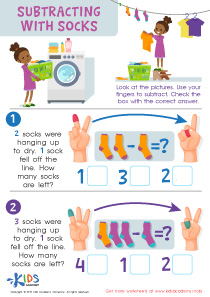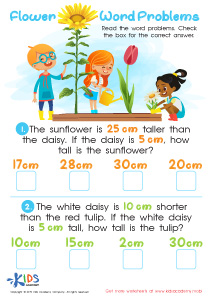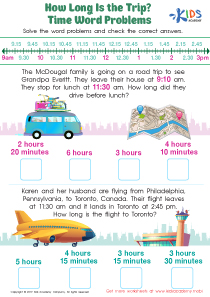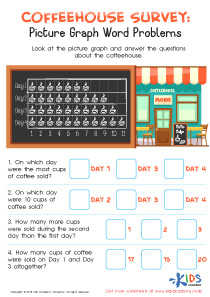Addition Practice Easy Addition and Subtraction Word Problems Worksheets for Ages 3-4
5 filtered results
-
From - To
Welcome to our Addition Practice page, designed specifically for children ages 3-4! Here, you'll find engaging worksheets featuring easy addition and subtraction word problems that make learning math fun. Our activities encourage young learners to develop their mathematical skills through playful themes and relatable scenarios. Each worksheet aims to promote critical thinking as kids solve problems and interact with numbers. Perfect for parents and educators wanting to introduce basic math concepts, these resources foster early numeracy skills while keeping kids entertained. Start your child's math journey today with our colorful, interactive worksheets that inspire confidence in addition and subtraction!
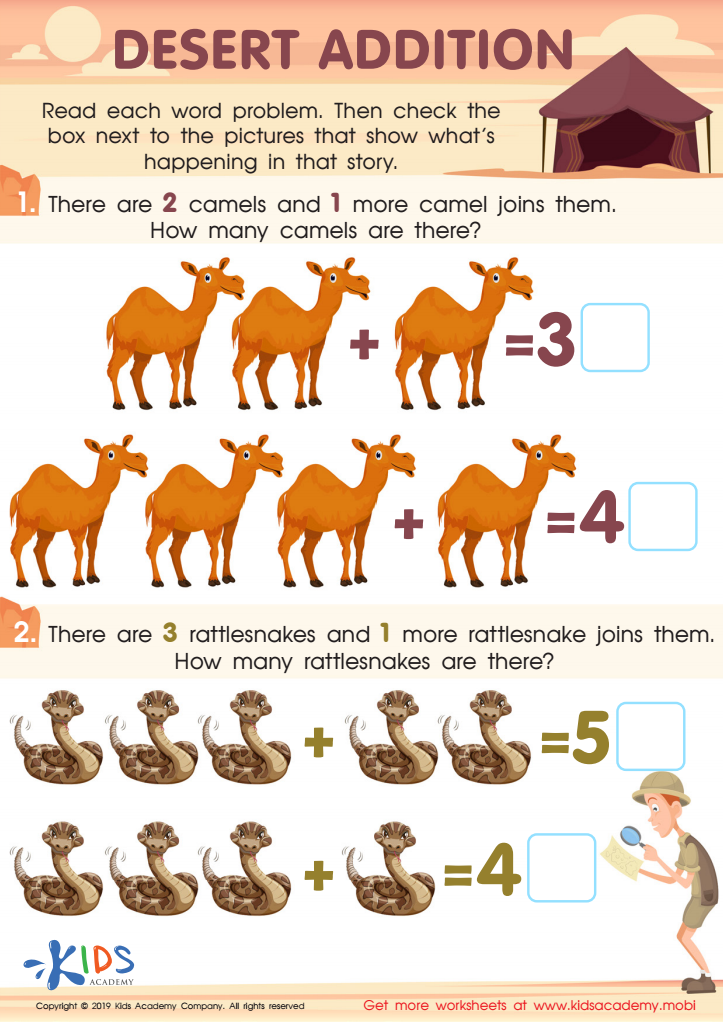

Desert Addition Worksheet
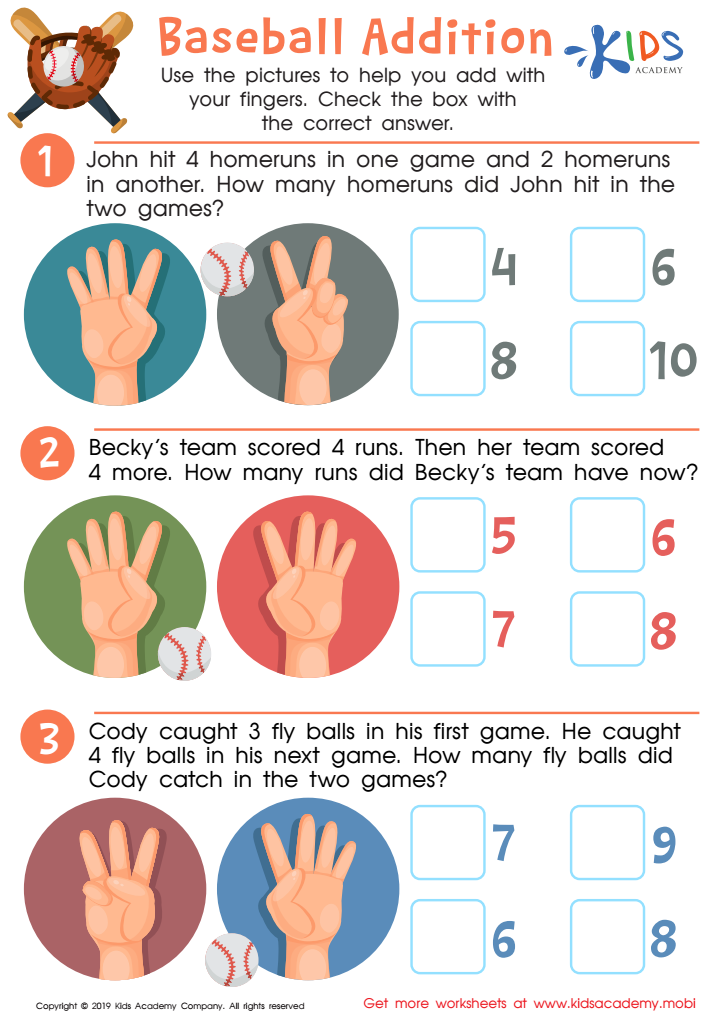

Baseball Addition Worksheet
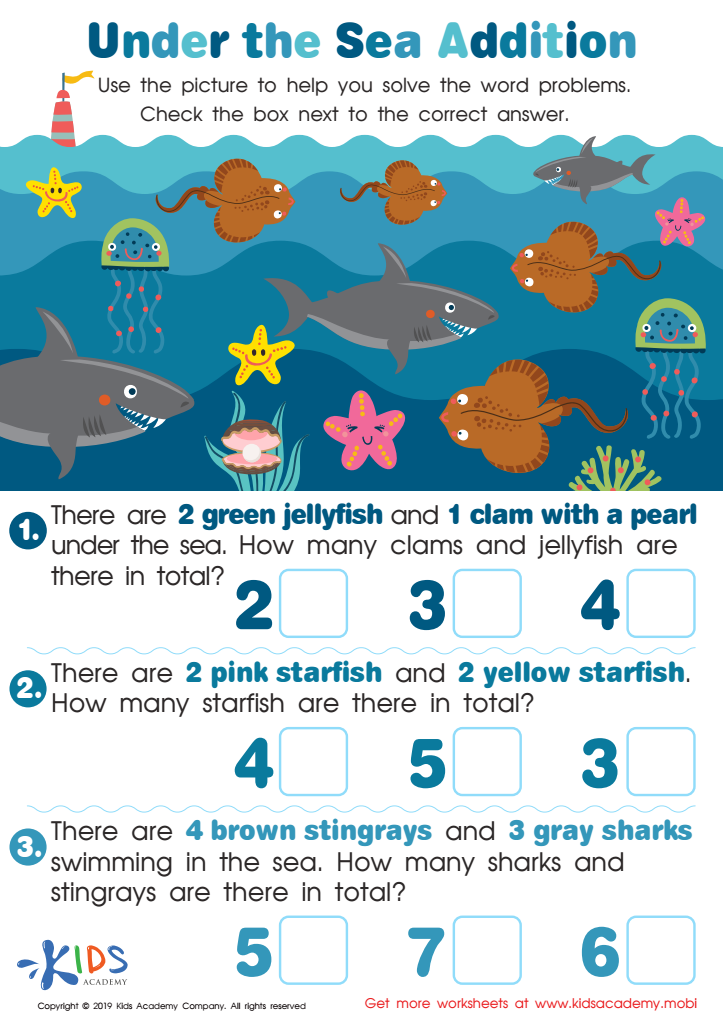

Under the Sea Addition Worksheet
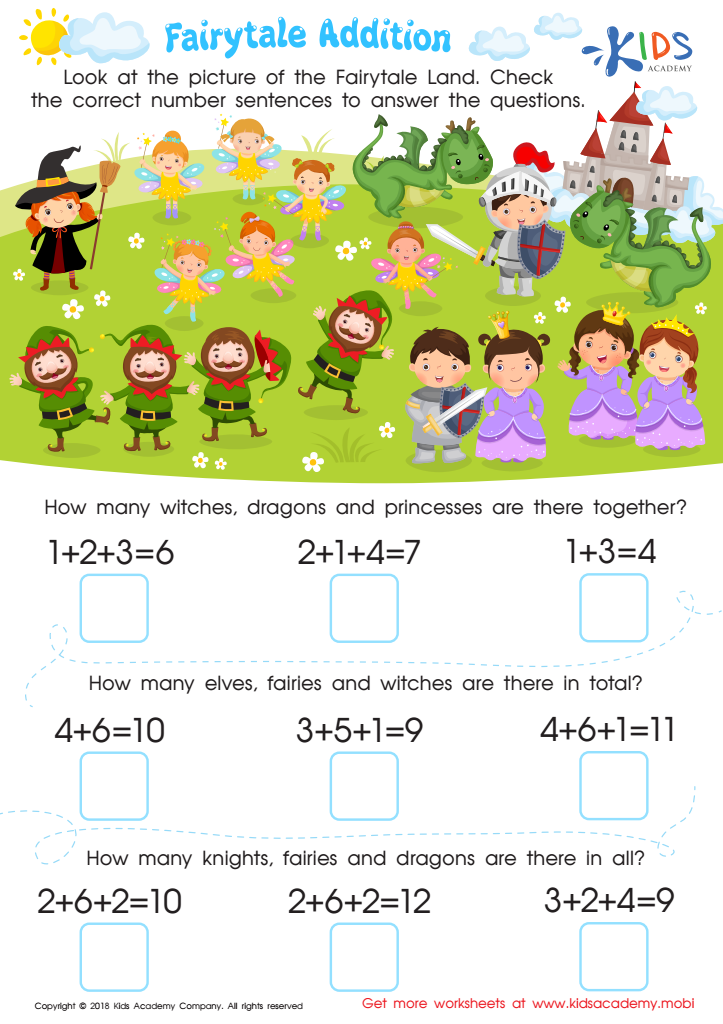

Fairytale Addition Worksheet
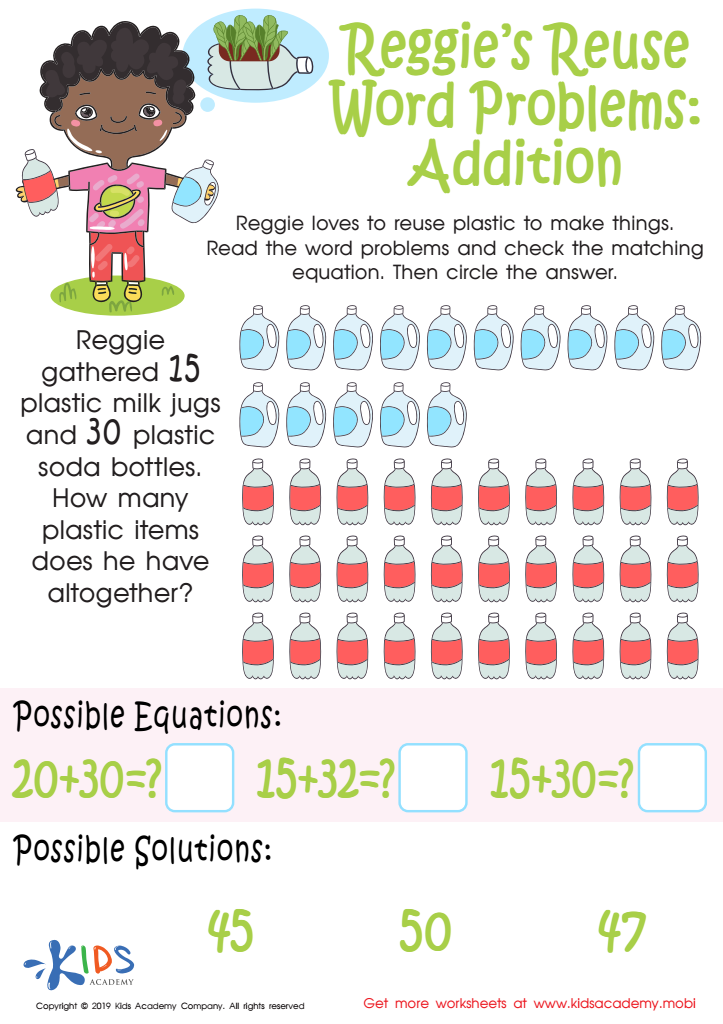

Reggie's Reuse Word Problems: Addition Worksheet
Parents and teachers should care about addressing easy addition and subtraction word problems for ages 3-4 because foundational math skills are crucial for early cognitive development. At this age, children begin to understand numerical concepts and relationships through play and exploration. Introducing simple word problems helps them learn how to apply their numerical knowledge in practical situations, enhancing their problem-solving abilities and critical thinking skills.
Engaging in addition and subtraction word problems not only aids in mathematical understanding but also builds vocabulary and language skills as children learn to articulate their thoughts. It encourages them to think logically and boosts their confidence in their mathematical abilities, setting a positive tone for future learning.
Furthermore, these activities are typically fun and interactive, making learning enjoyable and reinforcing a love for math from an early age. Parents and teachers can create a supportive environment where children can experiment with numbers, making mistakes and learning from them without fear of failure.
Ultimately, by focusing on easy addition and subtraction word problems, adults provide the groundwork for children’s future math success and foster overall growth in their cognitive, social, and emotional development.
 Assign to My Students
Assign to My Students












